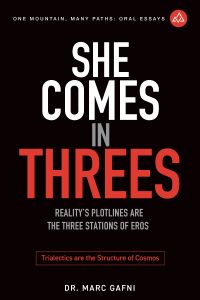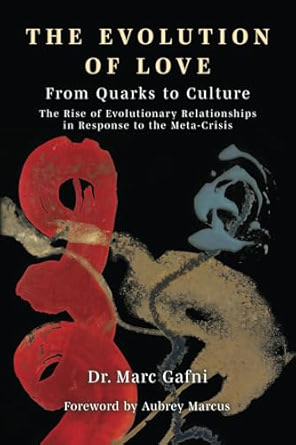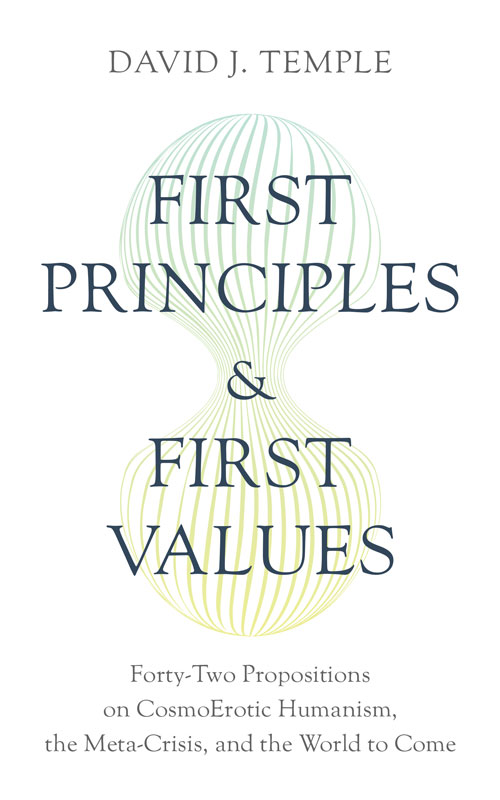First Principles and First Values | One Mountain Oral Essays | Dr. Marc Gafni
First Principles and First Values: From Existential Risk to Evolutionary Love: a New Story of Value for Humanity
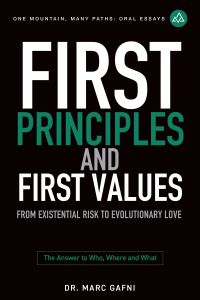
Published by World Philosophy and Religion Press in conjunction with Integral Wisdom Publishers.
Book details:
Title: First Principles and First Values: From Existential Risk to Evolutionary Love: a New Story of Value for HumanityAuthor: Dr. Marc Gafni
Series: Oral Essay Series – Volume 25
Publisher: World Philosophy and Religion Press in conjunction with Integral Wisdom Publishers.
ISBN-13: 979-8888340523
Formats: Paperback, e-book, audiobook.
Table of Contents
CHAPTER ONE THERE IS NO RESPONSE TO EXISTENTIAL RISK WITHOUT FIRST PRINCIPLES
- Love Is Real, and Love Evolves Reality
- What’s Worse, the Jump to 99% Destruction or From 99 to 100%?
- Option One for the Future: Peace
- Which Is Worse, the Move From Option One to Two, Or Two to Three?
- We Have Collective Responsibility towards Future Generations
- The Rwanda Genocide Happened Because There Was No Nationalism
- We Are the More God to Come
- The New Story Has Not Yet Been Told
- What Are First Principles?
- The New Story Must Be Based on First Principles
- Let’s Imagine a Different Scenario Together
- As Evolutionary Activists and Mystics, We Are Articulating A Memory of the Future
- Let’s Let Our Love Change the World
- Lines of Development Throughout History: Technology and Interiors
- The First Principle of Separate Self Leads to the Dignity of Modernity
- Separate Self Became Alienated From the Larger Field
- From Science to Scientism: From Differentiation to Dissociation From Spirit
- The Top Half of Dualism Was Lopped Off and We Were Left With Dogmatic Materialism
- The Return of Spirit in the Twentieth Century
- We Reclaimed True Self and Left the Separate Self of the Enlightenment Behind
- From Separate Self to True Self and Beyond
- We Need to Disambiguate Between Separateness and Uniqueness
- From Separate Self to True Self and Unique Self
- From Unique Self to Evolutionary Unique Self
- Evolutionary Unique Self Is a Unique Configuration of Outrageous Love
- Evolutionary Unique Self Is Homo Amor
- The Emergent Realization of Unique Self
- Homo Amor Is the Fulfilment of the Narrative Arc of Cosmos
- Matter Triumphs in the Form of Life
- Homo Amor: In Response to Existential Risk
- The Puzzle of Who Am I?
- Who Are You?
- Without Those First Principles We’ll Fail
CHAPTER TWO THE FIRST PRINCIPLE OF THE INNATE PLEASURE OF TRANSFORMATION
- Ontologizing Love as an Evolution of Intimacy
- Transformation Is the Nature of the Human Story
- Reality Has a Narrative Arc of Intention
- We Place Our Attention together
- Evolutionary Love Code: Reality Is Motivated By Pleasure
- Transformation Is the Highest Level of Pleasure
- The God You Don’t Believe in Doesn’t Exist
CHAPTER THREE FIRST PRINCIPLES & FIRST VALUES: THE URGENT & ECSTATIC MORAL IMPERATIVE OF OUR TIME
- Evolution From Separate Self Through True Self to Unique Self
- Success Summit: Success 1.0, Success 2.0, Success 3.0
- Evolutionary Unique Self: I Am a Unique Configuration of The Evolutionary Love That Animates All of Cosmos
- The Crisis in Reality Today Is a Crisis of First Principles and First Values
- Poised Between Utopia and Dystopia, the Way forward Is to Articulate a New Story Based on First Principles and First Values
- First Principles and First Values Integrate Premodern, Modern, and Postmodern Insights
- We Need to Reweave the Information Ecology to Articulate an Evolving Set of First Principles and First Values
- Prayer: I Want to Know What Love Is
- The First Value of Cosmos: Love Is Real
- The New Emergence: Unique Self Symphony
CHAPTER FOUR EVOLVING THE SOURCE CODE OF CONSCIOUSNESS AND CULTURE
- The Most Urgent Moral Imperative of Our Time Is the Articulation of First Principles and First Values
- The Dignities and Disasters of Modernity
- The First and Second Shocks of Existence Evoke New Gnosis
- Win/Lose Success Story Leads to Dystopian Scenarios
- At This Phase Shift in Human History, We Must Start the Reconstruction Project of Value
- We Need a Set of First Principles and First Values Before We Can Articulate a Shared Global Story
CHAPTER FIVE SURVEILLANCE CAPITALISM: “WE’RE GOING TO STEAL YOUR EXPERIENCE WITHOUT YOUR PERMISSION”
- First Principles and First Values Account for the Critiques of Natural Law and Perennial Philosophy
- Mistaken Assumptions of Natural Law and Perennial Philosophy
- Critiques by Postmodernity of Natural Law and Perennial Philosophy
- Postmodernity’s Critique of Perennialism and Natural Law Is True but Partial, and It Ignores Responsibility to Any Larger Grand Narrative—Except the Success Story
- The Nervous System of the Planet Is the Web, the Worldwide Virtual World
- Google’s Business Model Is Surveillance Capitalism
- Facebook Hijacks Your Attention, Takes Your Information, and Targets You With Ads, Thereby Compromising the Free Movement of Economy and Governance
- We Are Unaware of the Threat to Universal Human Rights
- The Failure to Articulate the Case Against the Tech Plex Is Rooted in a Failure of First Principles and First Values
- Surveillance Capitalism: We’re Going to Steal Your Experience Without Your Permission
- The Six Declarations of Google
- Instead of Solving Existential and Catastrophic Risk, Our Best Minds Are Caught in the Success Story
- From Holdables to Wearables to Biometric Sensors
- First Principles and First Values Refute Surveillance Capitalism
- Exposing the Inner Structure in Which Human Experience Is Being Stolen
- Activation: The Direct First-Person Experience of Reality Coming Alive in Me
CHAPTER SIX FIRST PRINCIPLES BEYOND RANDOMNESS
- Beyond Natural Law and Perennial Philosophy
- First Principles and First Values
- Certainty and Uncertainty
- Qualities of the Third From Within Light and Darkness, Masculine and Feminine
- Binary Pairs and Their Thirds Are a First Principle of Cosmos
- She Comes in Threes: Beyond Randomness and Contingency
- First Principles and First Values Are the Telos of Cosmos
- Authentic Conversation Has Both Contingency and Design
- Messiah: Conversation at a Higher Level of Freedom, Order, and Consciousness
- We Live in a Conversational Cosmos Which Has Both Randomness and Contingency
CHAPTER SEVEN FIRST PRINCIPLES RESPOND TO EVOLUTIONARY NEED
- The First Value of Need
- Need and Desire Are Intimately Related to Each Other
- When I Pray, I Clarify My Needs
- Evolution Desires, Evolution Yearns, Evolution Needs
- First Value and First Principle of Uniqueness
- Our Future Depends on Our Ability to Articulate a Shared Story Woven From First Values and First Principles
CHAPTER EIGHT INTEGRATING OUR UNIQUE SELF BY RESPONDING TO THE CALL OF OUR PAST, PRESENT, AND FUTURE SELVES
- Outrageous Love, the Most Powerful and Intelligent Force in Reality
- From the Periphery, We Steadily Suffuse Culture With the New Story
- It’s Crazy Good to Be Together in This Unique Moment in Time
- Evolutionary Love Code: The Past, Present, and Future Are First Principles and First Values of Reality
- The Evolution of Homo amor
- Shadow and Light Dimensions of Past, Present, and Future
- Hearing the Call of the Present Moment
- The Past as a Modality of Healing and Eros
- The Power and Pitfalls of Psychological Science and Enlightenment Science
- Evolutionary Science: Called Towards the Future
- Hearing the Call of Your Future Self
- Mark Twain’s Dream
- Message From the Master of the Good Name
- Feeling the Tug of the Future
- Homo Prospectus
- Can You Feel the Tug?
CHAPTER NINE EMERGENCE: CALLED BY MY FUTURE SELF
- Math and Science Live in Us as We Are Cosmic Humans
- We Think and Feel in Stories
- Stories Hold First Values and First Principles
- Psychological Science Focuses on the Past; It’s Important But Insufficient
- Unfinished Business
- Enlightenment Science Focuses On the Fullness of the Present
- Being Called by the Future: Emergence Science
- Death Is Not the End Because We Experience the Urgent Need for a Future
- The Four-Letter Name of God Is the Future That Lives in the Present
- Practice One: Accessing the Feeling of Connection to the Call
- Practice Two: Identifying My Unique Call
- The Unique Self Expression of Individuals in the Nascent State of Israel
- Practice Three: Love Letter to and From Your Future Self
CHAPTER TEN BEING PERSONALLY CALLED
- First Value and First Principle of Uniqueness
- First Value and First Principle of Personhood
- The Experience of Being Personally Addressed by Reality
- Hearing the Call to Our Natural Human Grandeur
CHAPTER ELEVEN LANGUAGE AS A PORTAL TO FIRST PRINCIPLES
- The Experience of Being Personally Addressed by Reality
- Eros Is a Meta-First Principle and First Value of Cosmos
- These Principles Are Fundamental and Not Isomorphic
- Each Fundamental Word Evokes a Different Quality
- Stories Hold First Principles and First Values
- Story and the Principle of Calling
- One of the Principles of Calling Is That Calls Are Often in Disguise
- Discerning Between Authentic Calls and Counterfeit Calls
CHAPTER TWELVE DIAGNOSING THE TECH PLEX: FROM DIGITAL DICTATORSHIP TO DIGITAL INTIMACY, FROM SOCIAL SELF TO UNIQUE SELF, FROM SOCIAL HIVE TO UNIQUE SELF SYMPHONIES
- The Articulation of Unique Self Consciousness Is the Overriding Moral Imperative of This Generation
- Separate Self, Social Self, True Self, and Unique Self
- Unique Self: I Am Irreducibly Valuable as a Unique Emergent of the Whole
- Your Unique Self Is Your Unique Response-Ability to Reality
- Your Unique Self Has Irreducible Value and Is Your Currency of Connection
- B.F. Skinner: The Human Being Is a Social Self
- B.F. Skinner: Let’s Nullify the Autonomous Man, the Inner Man
- Skinner’s Approach—Nullifying the Autonomous Man—Is the Basis of Social Media
- C.S. Lewis vs. B.F. Skinner: The Abolition of Man, the Abolition of Human Society
- However Misguided, Skinner Is Responding to Existential Risk and Critiquing Separate Self as the Source of Human Dignity
- Skinner Did Not Have the Tools to Develop Technologies of Human Behavior
- Alex Pentland, One of the Architects of the Web, Is a Direct Continuation of Skinner
- Pentland: Data Science Is the New Physics Which Will Allow Us to Enact a New Vision of Society
- The Founders of the Tech Plex Adopt the Vision of Skinner and Pentland
- Social Media Are Expressions of Skinner’s Walden Two
- We Need to Replace the Understanding of Natural Law With Evolving Perennialism, an Evolving Set of First Values and First Principles
- The Tech Plex: We Are Organizing Society as Social Selves
- True Self and Unique Self Are Ignored by the Tech Plex
- Unseen, Pentland, and Skinner Have Formed the Thinking of the Tech Plex, Which Arrogates to Itself the Right to Your Experience
- Personal Data Is Currently Being Used by Machine Intelligence Algorithms to Compromise the Two Basic Identities of Democracy: The Voter and the Consumer
- Under-The-Skin Surveillance Is the Next Step and Will Result in Digital Dictatorships
- The Postmodern Deconstruction of Value together With Surveillance Capitalism Results in the “Conditioners” Predicted by C.S. Lewis
- We Need to Respond to Social Self With Unique Self
- Power and Profit Agenda, Together With Utopianism Sans First Principles and First Values
- Imagine What Happens When a Dictatorship Owns Data
- In the Absence of Unique Self, Social Self Became the Animating Energy of the Nervous System of the Planet
- Our Job Is to Engage in a Reconstructive Project of Value So We Can Muster the Necessary Outrage Against the Tech Plex
About the Authors:
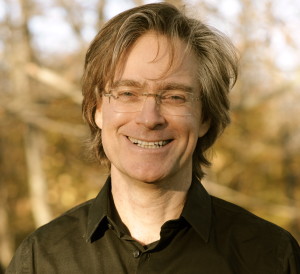 Dr. Marc Gafni is a leading public intellectual and teacher impacting the source code of global culture.
Dr. Marc Gafni is a leading public intellectual and teacher impacting the source code of global culture.
Gafni is a visionary thinker, social activist and passionate philosopher. He is known for his “source code teachings”, including Unique Self theory and the Five Selves, the Amorous Cosmos, A Politics of Evolutionary Love, A Return to Eros and Digital Intimacy.
He is author of twenty five books, of which the first ten have been published, including the award-winning Your Unique Self: The Radical Path to Personal Enlightenment.
He holds his doctorate in philosophy from Oxford University, as well as Orthodox rabbinic ordination.
He teaches on the cutting edge of philosophy in the West, helping to evolve a new ‘dharma’ or meta-theory of Integral meaning that is helping to re-shape key pivoting points in global consciousness and culture, with the aim of participating in the articulation of what Dr. Gafni together with Dr. Zak Stein and colleagues are calling CosmoErotic Humanism.
At the core of CosmoErotic Humanism is what Dr. Gafni and Dr. Stein are calling ‘First Principles and First Values’, Anthro-Ontology and a “Universal Grammar of Value”.
This is the ground of a new shared universe story and a new narrative of identity for the new human and the new humanity. This is what they are calling the emergence from Homo sapiens to Homo Amor.
This shared story rooted in First Principles and First Values can then serve as the matrix for a global ethos for a global civilization.
Gafni is considered by many to be a kind of Einstein of Philosophy who is leading a team of thinkers articulating a new vision of meaning for the world.
Dr. Gafni is the Co-Founder together with Ken Wilber and Sally Kempton of the Center for World Philosophy and Religion where he serves as its co-president. Together with Dr. Zak Stein, they are co-leading a team of thinkers, articulating a new vision of meaning for the world.
In 2014 Dr. Gafni co-initiated the Success 3.0 Summit and Rise Up movie, whose method and movement is to bring together key thought leaders and change-agents to collaboratively evolve a bold new Integral vision of Success, rooted in the entrepreneurial values of Wake Up, Grow Up, Show Up, and Outrageous Love.
Over the past 30 years, Dr. Gafni has developed evolutionary and activist programs rooted in his commitment to what he has termed “participating in the evolution of love.” Together with author and social innovator Barbara Marx Hubbard, he is working on a series of new works revolving around Evolutionary Spirituality.
Explore more:
Explore the Great Library:
Center for World Philosophy & Religion – Oral Essay Series → https://worldphilosophyandreligion.org/books/
Learn about the full Oral Essays series:
Complete Oral Essay Series → https://worldphilosophyandreligion.org/oral-essays-series-one-mountain-marc-gafni/
Dr. Marc Gafni Official Website:
https://marcgafni.com/
Center for World Philosophy and Religion:
https://worldphilosophyandreligion.org/
Free Weekly Broadcast with Dr. Marc Gafni:
https://www.onemountainmanypaths.org/
Join the community Who We Must Become:
https://who-we-must-become-3166d4.circle.so/
Free Unique Self Mini Course:
https://www.uniqueselfinstitute.com/the-unique-self-mini-course/
Formal refutations on controversy:
WhoIsMarcGafni.com
Social Media Dr. Marc Gafni:
Substack: https://substack.com/@marcgafni
Instagram: https://www.instagram.com/marcgafni/
YouTube: https://www.youtube.com/c/MarcGafni
Facebook: https://www.facebook.com/DrMarcGafni
Twitter:https://twitter.com/MarcGafni
LinkedIn: https://www.linkedin.com/in/drmarcgafni/
TikTok: https://www.tiktok.com/@drmarcgafni

